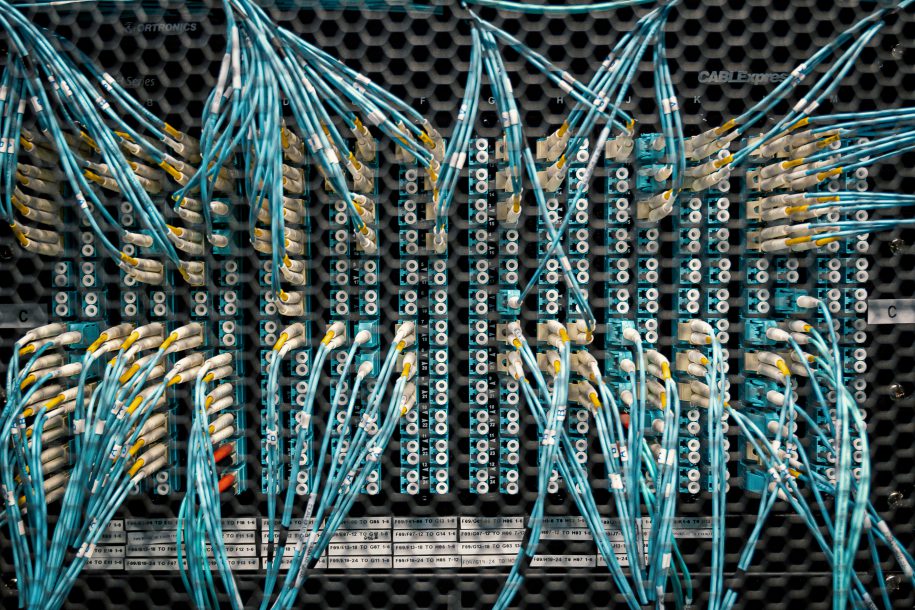What Are the Different Between Dedicated Internet Access And Business Broadband?
The main difference between Dedicated Internet Access and Business Broadband lies in the level of service and the type of connection they provide. Here’s a breakdown of the key distinctions:
Dedicated Internet Access:
- Exclusive Connection: Dedicated Internet provides a direct and dedicated connection to the internet for a single customer or organization. The bandwidth is not shared with other users, ensuring consistent and guaranteed performance.
- Higher Reliability: Dedicated Internet connections often come with service level agreements (SLAs) that guarantee certain levels of uptime, performance, and support. They offer enhanced reliability and minimal downtime.
- Symmetrical Speeds: Dedicated Internet connections typically offer symmetrical upload and download speeds, providing efficient data transfer in both directions.
- Customizable Bandwidth: Dedicated Internet can be scaled up or down to meet the specific needs of the customer. Bandwidth can be adjusted to accommodate changing requirements.
- Security and Privacy: Dedicated Internet often includes advanced security features, such as dedicated firewalls and virtual private networks (VPNs), ensuring a high level of data protection and network security.
- Higher Cost: Dedicated Internet is generally more expensive compared to Broadband due to the exclusive nature of the connection and the guaranteed performance.
Business Broadband:
- Shared Connection: Broadband connections are shared among multiple users in the same geographical area. The available bandwidth is divided among the users, which can lead to variable performance during peak usage times.
- Lower Cost: Broadband connections are typically more affordable compared to Dedicated Internet. They offer cost-effective internet access for residential users and small businesses.
- Asymmetrical Speeds: Broadband connections often have asymmetrical upload and download speeds, with faster download speeds and slower upload speeds.
- Varied Service Quality: Broadband connections do not come with SLAs and may have limited technical support options. Service quality can vary based on the service provider and the network conditions.
- Wide Availability: Broadband is widely available in many areas, including remote locations. The infrastructure for broadband connections is more extensive, providing greater accessibility.
Who Should Use Dedicated Internet Access (DIA) And Who Should Use Business Broadband?
The decision to use Dedicated Internet Access (DIA) or Business Broadband depends on the specific needs and requirements of an organization. Here are some considerations for each:
Dedicated Internet Access (DIA) is typically suitable for:
- Large Enterprises Or Financial Related Institute Or Government Agency: Organizations with significant connectivity requirements, such as multinational corporations or large businesses, or financial institute or government agency that rely heavily on data-intensive applications, cloud services, and real-time communication, can benefit from the dedicated bandwidth, symmetrical speeds, and reliability of DIA.
- Mission-Critical Applications: DIA is ideal for businesses that require a high level of performance, uptime guarantees, and service level agreements (SLAs) for mission-critical applications, such as financial institutions, healthcare providers, or government agencies.
- Data-Intensive Operations: Businesses that frequently transfer large files, perform backups, host servers, or require extensive data sharing and collaboration can benefit from the faster, more reliable, and scalable nature of DIA.
- Enhanced Security Needs: DIA provides a dedicated connection and advanced security features like dedicated firewalls and VPNs, making it suitable for organizations that handle sensitive or confidential data, such as legal firms or financial institutions.
Business Broadband is typically suitable for:
- Small and Medium-Sized Businesses (SMBs): SMBs with moderate connectivity needs, basic online operations, and limited budgets can find business broadband to be a cost-effective solution that offers reliable internet access for general business activities, such as email, web browsing, and cloud-based applications.
- Remote or Branch Offices: Business broadband is well-suited for remote or branch offices that require a stable and affordable internet connection to access corporate resources, communicate with headquarters, and perform day-to-day operations.
- Price-Conscious Organizations: Businesses that prioritize cost savings and don’t have extensive connectivity requirements may opt for business broadband due to its affordability and wide availability.
- Non-Critical Applications: Organizations that do not heavily rely on real-time communication or data-intensive operations, and where occasional fluctuations in speed or performance are acceptable, can make use of business broadband for their general internet needs.
We offer a wide range of internet services including broadband, dedicated internet access (DIA), METRO-E, leased line, fiber internet, xDSL and etc. In Malaysia, we have many prestigious client including Accenture, Adidas, Honda, Mudajaya, MSIG and etc. If you are looking for dedicated internet access in Malaysia, please feel free to contact us.


Leave a Reply